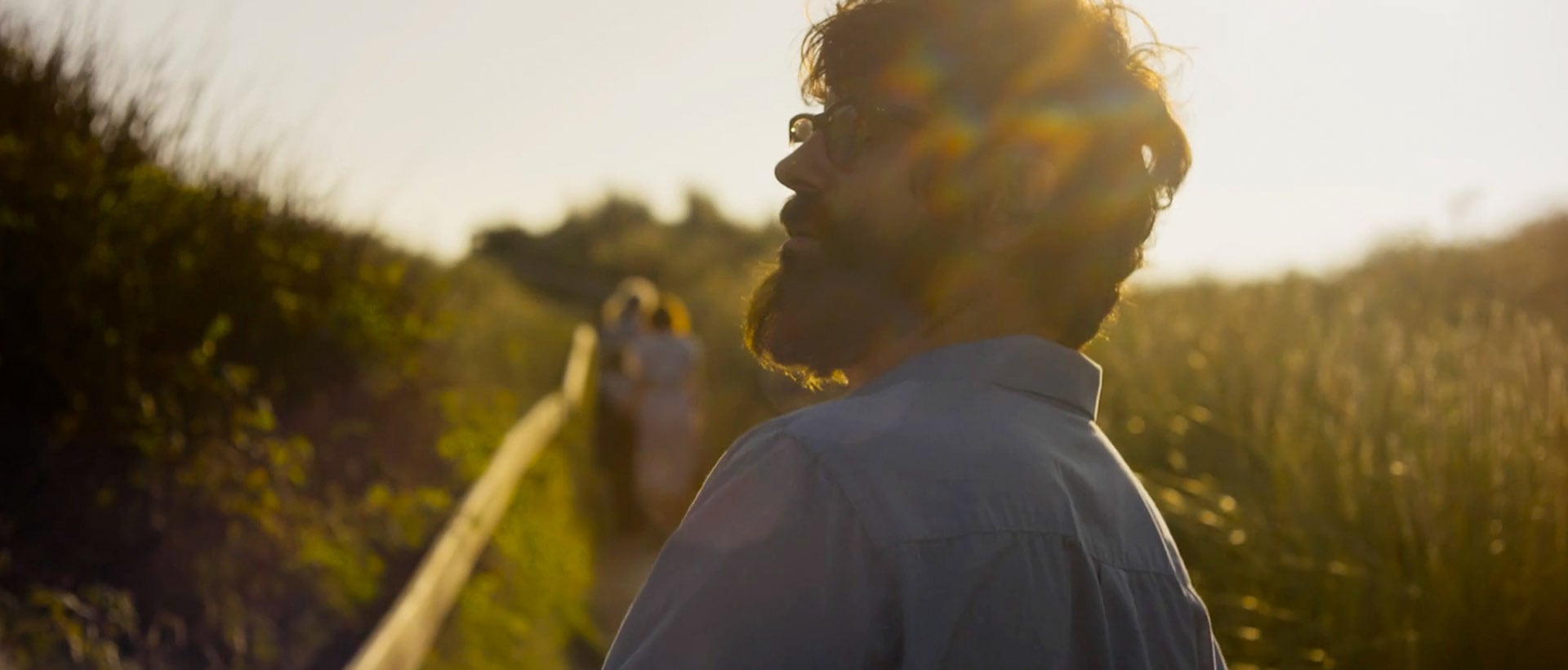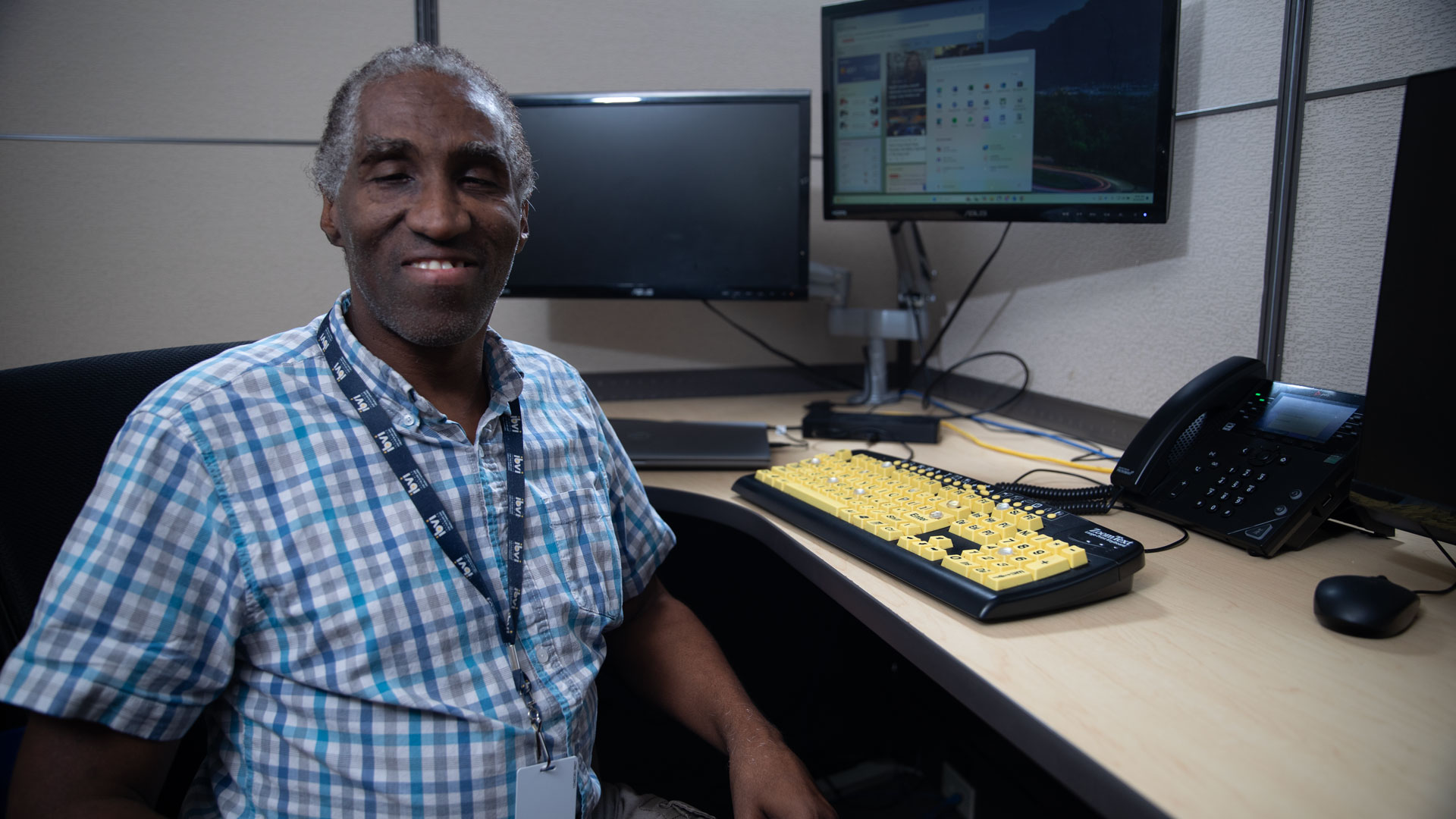Five years ago, filmmakers Peter Middleton and James Spinney were researching testimonies on the blind experience when they happened upon Touching the Rock: An Experience of Blindness, written by theologist, academic and author John Hull. Published in 1992, the book tells the story of the author’s emotional transition from life as a sighted person to total vision loss.
![]()
“We were hooked by the way he was able to communicate his experience,” says director Peter Middleton. He and co-director James Spinney reached out to John Hull, and after six months of communication, the author gave the directors access to almost 16 hours of audio diaries he’d recorded over the course of three years as a means of coping with the loss of his vision.
“The recordings are kind of poetic and philosophical,” explains Peter. “They detail the effects of blindness on his family life, how it affects his ability to communicate with his children, the physical changes he experiences, and the psychological impact.”
With the goal of showcasing the interior world of blindness, the directors pulled passages from John’s audio diaries and produced a 12 minute short, which debuted in 2014. After being flooded with positive feedback and momentum, the directors decided to further develop John’s story into the full length feature film, Notes on Blindness.
They began shooting in July 2015 and had only a few months to film in order to meet Sundance Film Festival’s deadline. However, according to Peter, the actual process of producing the film has been a long time coming.
“We’ve been working on this story for the better part of three years. It’s been an ongoing process and we’ve been constantly trying to chip away at it. We had a fantastic team of people working on the film.”
Throughout the course of filming, the directors had the chance to spend time with John’s children, all of whom are now adults. They even developed a separate 14 minute short titled Radio H, which focuses on the last several decades of John’s life from the perspective of his daughter Imogen – the only child to have known her father before he lost his vision.
“It’s interesting speaking to [his children] about their memories of how John was as a father,” says Peter. While part of the movie touches on John’s concerns about his ability to be a good father post-blindness, Peter found that his children felt quite differently.
“John describes a feeling of almost impotency [as a parent], which isn’t the children’s memory of how he was as a father at all. They actually remember him being very gregarious, very playful, and being a fantastic dad.”
Notes on Blindness (Official US Trailer) from BOND/360 on Vimeo.
What makes Notes on Blindness particularly unique is the emphasis the directors placed on accessibility and technology while creating the movie. In fact, the team worked with leading researchers in Europe and the Royal National Institute for the Blind in an effort to showcase new approaches in accessibility that go beyond audio description. Ultimately, the team created several different soundtrack options for viewers to choose from in addition to the standard version.
The audio-described versions use a spoken description to relate what’s happening outside of the dialogue. Rather than relying on an external narrator, the directors made the film accessible to the blind and visually impaired by including additional narration from the perspective of the film’s subjects. Views can choose between a version narrated by John (played by Stephen Mangan) or his wife Marilyn (narrated by Louise Fryer). Also available is an enhanced soundtrack version, which uses more original narration from John and Marilyn to tell the story. This version uses extra sound design and music in order to evoke action through sound effects, rather than simply providing a literal description. In order to ensure all soundtrack options were widely available, the team partnered with MovieReading, enabling blind and visually impaired audience members to use their preferred soundtrack option in the cinema directly from their smartphone.
“It’s quite remarkable. Hopefully this will be the beginning of this kind of [accessible] technology taking root,” says Peter.
Notes on Blindness debuted at Sundance film festival in January 2016 and went on to be featured at film festivals across the U.S., including Milwaukee Film Festival, Chicago International Film Festival, San Francisco International Film Festival, winning numerous awards along the way.
Alongside the film’s debut at Sundance, the team also unveiled an immersive virtual reality (VR) project based on John’s sensory and psychological experience of blindness titled Notes on Blindness: Into Darkness. Each scene addresses a memory, a moment and a specific location from John’s audio diary, using binaural audio and real time 3D animations to create a fully immersive experience in a ‘world beyond sight’.
“John’s story is an internal one; it deals very much with the effects of sight loss on his dreams, on his memory and on his imaginative life,” Peter states. “It is an incredible story and he’s a fantastic storyteller. The way he was able to communicate his experience was endlessly fascinating.”
ibMilwaukee employee Deborah Ambro-Crandell had the opportunity to attend the Milwaukee screening of Notes on Blindness. As someone who lost her vision in her late teens, she says she found herself relating to many aspects of the story.
“It was a hard film to watch in a lot of ways for me because it was bringing up all of those painful pieces of losing your sight,” she explains. “There’s a human experience in the movie that supersedes blindness itself. I think it’s beneficial for sighted and blind – I think sighted people would probably see John as having a heck of a lot of fortitude and strength.”
Sadly, John Hull passed away on July 28, 2015 – just a few weeks after filming began. However, Peter has fond memories of the few years he and co-director James Spinney spent getting to know him.
“He had a wonderful outlook on life, and did have those qualities of fortitude. He was also just wonderful company. Once he moved through the period of sight loss, he really experienced a blooming of his character. He did very much find himself at peace with blindness.”
Notes on Blindness was officially released in theaters throughout the United States on November 16th.
If you’re interested in learning more about John Hull and his written work, visit his website: www.johnmhull.biz.
Interested in learning more about Notes on Blindness? Check out our full length interview with director Peter Middleton on Blind Living Radio or listen below!


